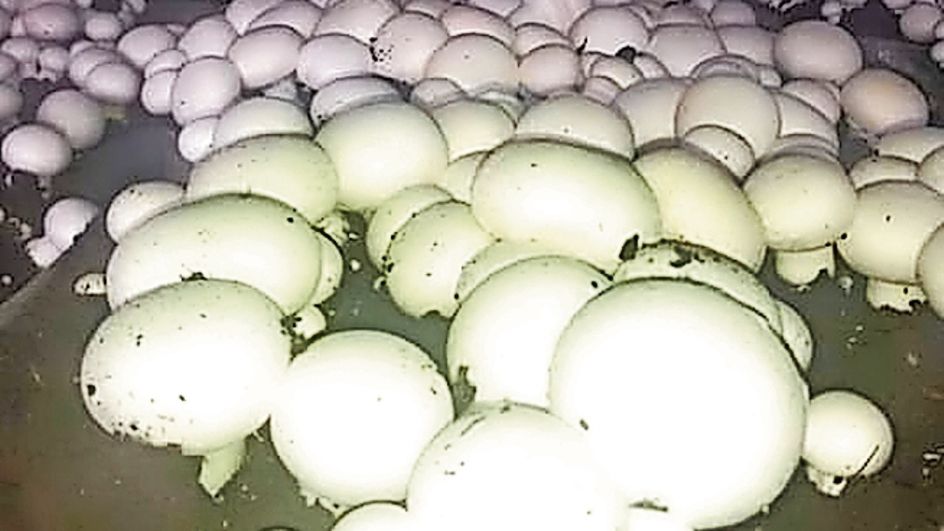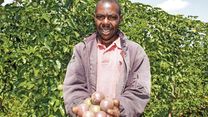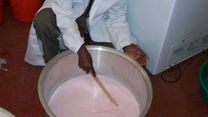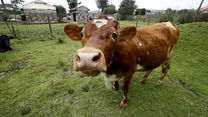
Advice on mushroom farming
I am interested in doing mushroom farming since it doesn’t need a lot of space.
I need to know how I can get seeds, grow the crop and market the crop on the Coast, specifically in Ukunda, Kwale County.
-Gideon Sifumbukho Waliaula
Thank you, Gideon, for your interest in mushroom farming. There are two types of mushrooms, namely button and oyster mushrooms.
Spawns (seedlings) are the ones that are planted and you have to buy them from the Kenya Agricultural and Livestock Research Organisation (Kalro) or other institutions.
The biggest challenge in mushroom production is getting quality spawn. You will also need a room where you will plant the mushrooms because they are not grown in the field.
You will also need wheat straw, bean straw, millet straw or rice straw for preparation of compost on which the mushrooms will grow.
Compost is made by mixing the straw with molasses, cotton seed cake and urea. The straw should first be soaked in water and then mixed with the other ingredients. The compost should be sterilised to avoid pests and diseases.
After compost preparation, planting of the spawns follows and this is done by mixing the compost with the spawns in sacks.
The sacks are then taken to the growing room. The temperature around the bag should be maintained at 32°C.
After about 10-14 days, the spawns start to emerge. When they are visible as small white grains add some soil, preferably forest soil in the sacks.
At this stage humidity should be introduced by use of a humidifier or a knapsack sprayer. Make sure you use clean water and spray the air and the floors of the growing room. Humidity is needed for growth of the mushrooms.
Depending on the days the spawns took to emerge, mushrooms are ready for harvesting after 10-14 days and harvesting continues for one-and-a-half months. Ensure you observe high standards of hygiene.
You cannot lack market for mushrooms in hotels, institutions, groceries, urban markets, supermarkets and even individuals.
Carol Mutua,
Department of Crops, Horticulture and Soils, Egerton University
Department of Crops, Horticulture and Soils, Egerton University
NB:
All about button and oyster mushrooms
There are two types of mushrooms, namely, button and oyster mushrooms. Spawns (seedlings) are the ones that are planted and you have to buy them from the Kenya Agricultural and Livestock Research Organisation or other institutions.
All about button and oyster mushrooms
There are two types of mushrooms, namely, button and oyster mushrooms. Spawns (seedlings) are the ones that are planted and you have to buy them from the Kenya Agricultural and Livestock Research Organisation or other institutions.
The biggest challenge in mushroom production is getting quality spawn. You will also need a room to plant the mushrooms because they are not grown in the field.
You will also need wheat straw, bean straw, millet straw or rice straw for preparation of compost on which the mushrooms will grow.
Compost is made by mixing the straw with molasses, cotton seed cake and urea. The straw should first be soaked in water and then mixed with the other ingredients.
****
I need information on beekeeping
I have a big interest in bee farming. I already have 15 top-bar hives in Tombe, Kitutu Masaba, Nyamira County, and still want to construct more. I need detailed information on bee management and best practices.
Specifically, I want you to teach me how to attract the bees to enter the hives; how to feed them during the dry season; how you distribute the ones in the hives to others; best plants to be grown around the beehives; and, predators or insects that attack bees and how best you can overcome them.
-Janet
Your question will be taken care of in detail by a comprehensive A to Z guide on beekeeping that will be published very soon, please keep reading the Seeds of Gold.
However, there are four types of beehives, Langstroth being the latest/modern one. After having your hives well-sited under shades, near trees or flowers or farm from busy places, set your catcher box to attract bees.
Worker bees look for feed daily from the plants but during dry seasons, you need to supplement them.
This involves providing sugar syrup and water near the hives so that they do not disappear to other places in search of feeds.
You also need to attend hands-on training on beekeeping at Egerton University, Department of Animal Sciences.
The Hive Group is a well-established organisation dealing with beekeeping, training of farmers and sale of quality bee equipment. You can reach them on beekeepers@thehive.co.ke or 0706349748.
Felix Akatch Opinya, Department of Animal Sciences, Egerton University
****
Where can I buy rainbow carrot seeds in kenya?
Where can I buy rainbow carrot seeds in Kenya? What about seeds of yellow golden zucchini?
-Miriam
-Miriam
Rainbow carrot seeds and yellow golden zucchini seeds are not available in Kenya but you can import them.
For rainbow carrot seeds, kindly visit www.etsy.com and for yellow zucchini seeds visit www.amazon.co.uk for more information, including the possibility of growing the two in Kenya.
You can also get more sellers online if you search.
Carol Mutua,
Department of Crops, Horticulture and Soils, Egerton University.
****
Department of Crops, Horticulture and Soils, Egerton University.
****
Kindly advise on rosemary growing
My name is Gideon Gitau and I would like to seek advice on Rosemary growing for the export market.
-Gideon Gitau
Gideon, this is a very good idea but there is a procedure you should follow for you to be allowed to export your rosemary.
You should start by practising Good Agricultural Practices (GAP) as they will determine if your produce is good for the export market.
The Horticulture Crop Directorate (HCD) will ensure the GAP conditions are met before a farmer is issued with a compliance certificate. The compliance certificate enables the farmer to start producing a crop for export.
HCD also checks the farm before the farmer starts cultivating to ascertain its suitability before certification is done. The certificate enables the farmer to look for contract farming with exporting companies in Kenya.
Kenya Plant Health Inspectorate Service (Kephis) issues a phytosanitary certificate after ascertaining that the product is free from pests, diseases and chemical residues.
For more information, contact HCD through 254 (20) 2131560 or 254 (20) 2088469.
Carol Mutua,
Department of Crops, Horticulture and Soils, Egerton University
Department of Crops, Horticulture and Soils, Egerton University
****
Where I can buy Kei Apple seeds?
I am in the process of starting a seedling nursery. I would like to know where I can buy Kei apple seeds. I am ready to pay handsomely for top quality seeds. I can be contacted on 0722 17 53 04.
-Mutuma Nkonge
You can get Kei apple seeds from the Kenya Forestry Research Institute (Kefri). You can reach Kefri on enterprise@kefri.org or call 0729 058034 or 0722 154414.
Carol Mutua,Department of Crops, Horticulture and Soils, Egerton University
****
How can I get chia seeds?
I have learnt a lot about Chia and feel those benefits need to help Kenyans. Please advise where I can get the seeds.
-Mathew
Chia (Salvia hispanica) is an annual herb growing up to a metre high with purple or white flowers produced in numerous clusters in a spike at the end of each stem.
It is grown commercially in the US, Bolivia, Argentina, Ecuador, Nicaragua, Guatemala, Australia and Mexico for its seeds that are rich in Omega-3 fatty acids.
The seeds yield 25 to 30 per cent extractable oil that includes a-linolenic acid (ALA).
Soaked seeds develop a mucilaginous gel-like coating that gives chia-based beverages a distinctive slimy texture.
This crop has not been officially introduced in Kenya and, therefore, finding seeds may be difficult unless some farmer is growing it somewhere.
If you can get your hands on seeds, we can provide you with information on production.



